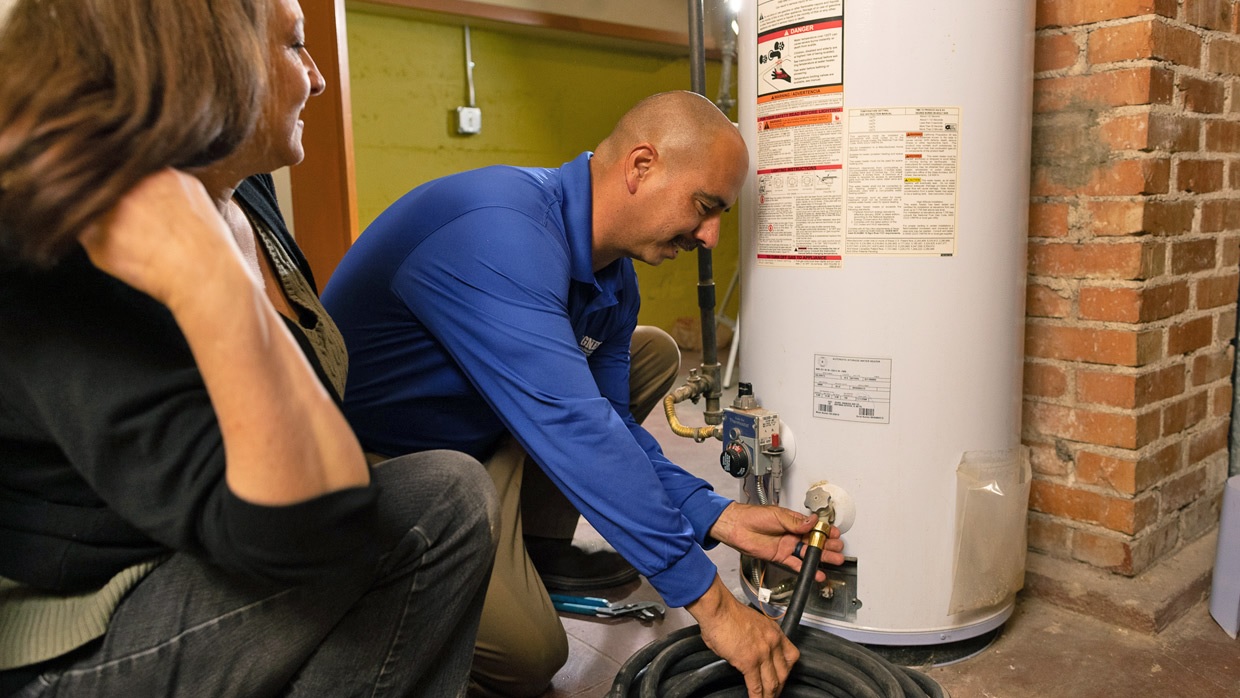
Key Takeaways:
- Regular maintenance can prolong the lifespan of your water heater.
- Recognizing signs of potential issues can save you money and hassle.
Why Water Heater Maintenance Matters
Did you know that regular maintenance can extend the life of your water heater and significantly improve its efficiency? Homeowners who neglect maintenance often face unexpected breakdowns and hefty repair bills. If you need quick water heater repair Peoria services, this becomes even more problematic. At the same time, local plumbers can promptly address urgent issues; consistent upkeep can help avoid these emergencies altogether. Understanding why water heater maintenance is essential can help you maintain a functional and efficient system, thus extending its lifespan.
Routine maintenance also helps you catch minor issues before they become significant problems. It’s much easier (and cheaper) to handle a sediment buildup than to replace a corroded tank. Not only does this save money in the long run, but it also ensures you can get hot water at inconvenient times. The benefits you reap from regular water heater care can be substantial with just a bit of effort.
Common Maintenance Tasks
Some basic maintenance tasks are easy to perform and can make a significant difference in the longevity and performance of your water heater. These include:
- Flushing the Tank: Over time, sediment can build up in the tank, affecting its performance. Draining and flushing the tank removes this sediment and improves efficiency. This process is simple: turn off the water supply, attach a hose to the tank’s drain valve, and direct the water to a safe location before opening the valve. Ensuring the tank is flushed annually can maintain optimal performance.
- Inspecting the Anode Rod: The anode rod prevents rust from forming inside the tank by attracting corrosive elements in the water. Regular checks and necessary replacements can prevent corrosive damage and prolong the life of your water heater. The rod can be checked by loosening it with a wrench and pulling it out for inspection. If it’s more than 50% corroded, it’s time to replace it.
- Checking the Pressure Relief Valve: This valve ensures the tank doesn’t explode from too much pressure. Regular inspection is necessary to ensure it’s functioning correctly. To test it, lift the valve lever to allow water to come out, then let go. If water continues to flow, the valve needs to be replaced.
Signs Your Water Heater Needs Attention
Recognizing the signs of potential problems can save you a lot of inconvenience and money. Here are some red flags to watch out for:
- Strange Noises: Rumbling or popping sounds can indicate sediment buildup, which causes the water heater to work harder than necessary. Regularly flushing the tank can help minimize these noises.
- Irregular Hot Water: Inconsistent water temperature or lack of hot water can suggest an issue with the heating elements or buildup within the tank. If the water takes longer to heat up or doesn’t stay hot, it might be time for a checkup.
- Leaks: Any water pooling around the unit indicates that you need immediate service. Various issues, such as a faulty valve, excessive pressure, or a corroded tank, can cause leaks. Prompt attention to leaks can prevent more significant damage and costly repairs.
This water heater troubleshooting guide provides more information on identifying and addressing common issues. Regular checks help ensure your water heater remains in top condition, avoiding sudden failures and maintaining a steady hot water supply.
Professional vs. DIY Repairs
While some maintenance tasks are doable for the average homeowner, certain repairs require professional expertise. Complex issues like gas valve problems, extensive leaks, or electrical component failures are best left to professionals. Attempting such repairs without the necessary skills can be dangerous and might lead to further damage. It’s safer and ensures the job is done correctly when you hire a professional plumber.
Professionals bring specialized tools and knowledge, guaranteeing the repair is practical and safe. They can also perform a comprehensive inspection to catch other potential issues, ensuring your water heater’s longevity.
Improving Water Heater Efficiency
For those looking to maximize their water heater’s efficiency, consider these additional tips:
- Lower the thermostat setting to 120°F to save energy and prevent scalding. Most water heaters are set to 140°F by default, but lowering the temperature can reduce energy consumption by up to 10%.
- Install a water heater blanket: This reduces heat loss and insulates the water heater. These inexpensive blankets can provide significant energy savings, especially for older units.
- Use low-flow fixtures: Faucets and showerheads with low-flow options reduce the amount of hot water used, easing the demand on your water heater. This conserves water and reduces the energy needed to heat it, improving overall efficiency.
Combining these efficiency tips with regular maintenance can significantly enhance your water heater’s performance, reduce energy costs, and elongate its service life.
Benefits of Regular Maintenance
Ultimately, regular maintenance extends the life of your water heater and helps you save on energy bills. Consistent upkeep keeps the system running efficiently, preventing it from overworking and consuming more energy than necessary. This ensures you always have hot water when needed and can prevent emergency repairs, which are often much more expensive.
Regular maintenance is key to extending the life of your water heater and ensuring it operates efficiently. To Find Out More about effective maintenance tips and professional services that can help keep your water heater in top condition, explore resources that offer expert advice and solutions. Proper care can prevent costly repairs and extend the lifespan of your equipment.
Furthermore, a well-maintained water heater provides peace of mind. You won’t have to worry about unexpected breakdowns or the inconvenience of lost hot water. You can enjoy a reliable, efficient, and long-lasting water heater by investing a little time and effort in regular maintenance.
Conclusion
Maintaining your water heater doesn’t have to be a daunting task. With these simple tips and some regular care, you can ensure it remains in good working condition for years. Remember, a well-maintained water heater is about convenience, safety, and efficiency. Take the initiative to perform routine maintenance, watch for warning signs, and don’t hesitate to call a professional when necessary. Your attention to these details will pay off in the long run, ensuring a steady supply of hot water and a more energy-efficient home.






